As the world embraces Africa’s music revelations, 2024 stands before us, an uncharted canvas ready to be painted with vibrant strokes of musical ingenuity. What are the projections for African music this year? What factors will shape the continent’s music landscape?
By Emmanuel Okoro
Without a doubt, African music in 2023 captivated the world on an immense scale that had never been experienced before. This was followed by recorded successes on several fronts, spotlighting the continent’s biggest and newest artistes. If it wasn’t apparent before, the world has come to embrace sought-after African music as a staple inclusion in global sonic palettes.
As the world embraces Africa’s music revelations, 2024 stands before us, an uncharted canvas ready to be painted with vibrant strokes of musical ingenuity. What are the projections for African music this year? What factors will shape the continent’s music landscape?
Afrobeats’ Continued Global Dominance
Africa’s biggest genre yet, Afrobeats along with its sub-genres, has continued to take flight and shape narratives over the last 6 years. Exported from West Africa, the genre has grown to gain cross-continental appeal, promoting its artistes on the global stage. The triumvirate of Wizkid, Davido, and Burna Boy has led the charge, unfurling the banner of Afrobeats across continents and captivating a diverse and growing global audience.
Last year, Spotify launched “Afrobeats: Journey of a Billion Streams”, to keep up with the genre’s dominance across the world. The genre also experienced the inclusion of Afrobeats into notable international award categories, including Grammys, the Billboard Music Awards, and MTV Video Music Awards, as undeniable proof of its influence and impact, with African acts like Tems, Rema, Tyla, Burna Boy, and Davido delivering live performances at global talk shows and sporting events.
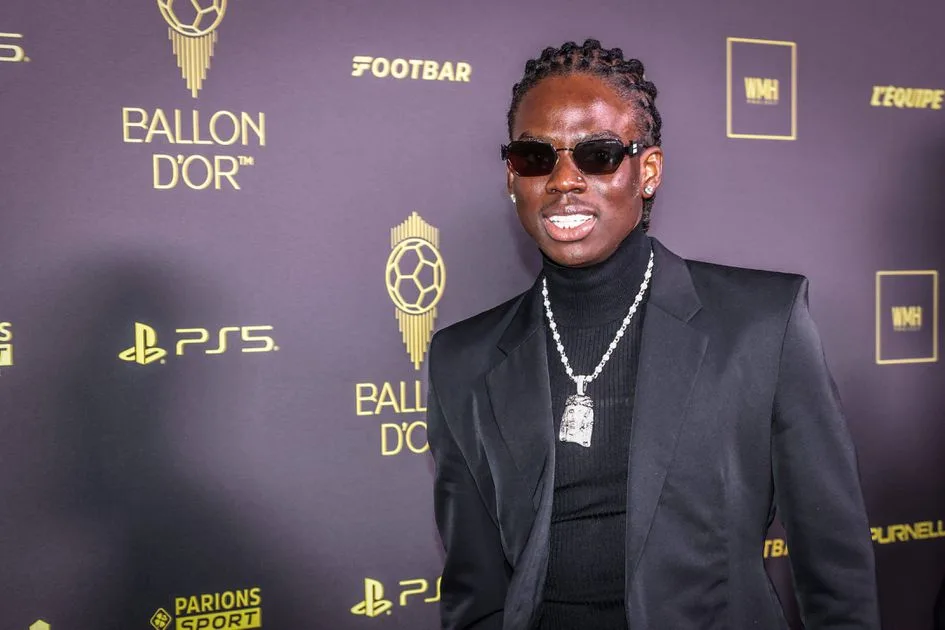
This year, the expectations are high for more ground-breaking feats for the genre across the continent and all over the world. Perhaps, we may experience an Afrobeats song clinching a non-Afrobeats and non-International award at a major music event.
The Rise of Female Gen-Z Artistes
The continent has continuously ushered breakout stars every year. Last year introduced sensations like Shallipopi and Odumodublvck, but it was the South African Gen-Z sensation, Tyla, who stole the spotlight with her chart-topping single “Water”, propelling her into the realms of superstardom.
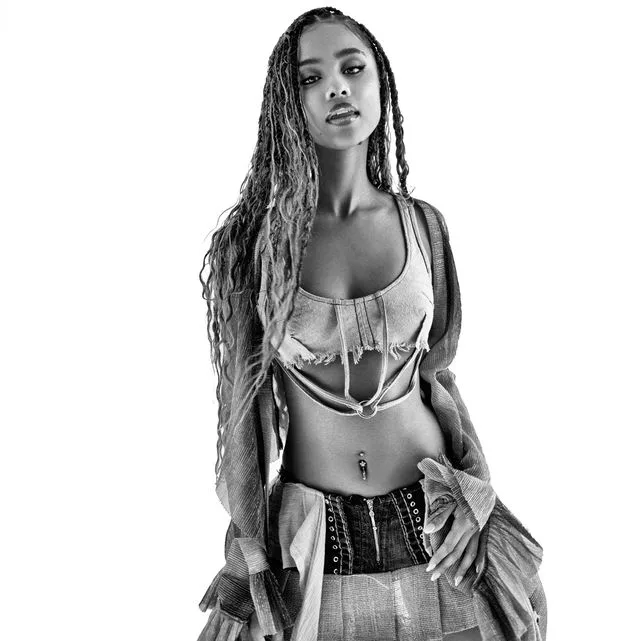
Navigating an industry dominated by male voices, Tyla’s ascent highlighted the changing tide, breaking barriers not just as a female artiste, but also as a Gen-Z trailblazer. She symbolised the fearless spirit of a new generation. Tyla wasn’t the lone star to illuminate the scene; preceding her were the likes of Nigeria’s Ayra Starr and Cameroonian singer, Libianca, both formidable Gen-Z forces who asserted their presence in the industry.
This year, the stage is set for a potential showcase of more female Gen-Z musicians. Artistes like Qing Madi, Kold AF, Lifesize Teddy, Bloody Civilian, and Xenia Manasseh are poised to redefine the narrative, challenge conventions, and carve their niches in a space traditionally dominated by their male counterparts. The Gen-Z wave, with its unapologetic energy and fresh perspectives, promises to further diversify and enrich Africa’s music landscape this year.
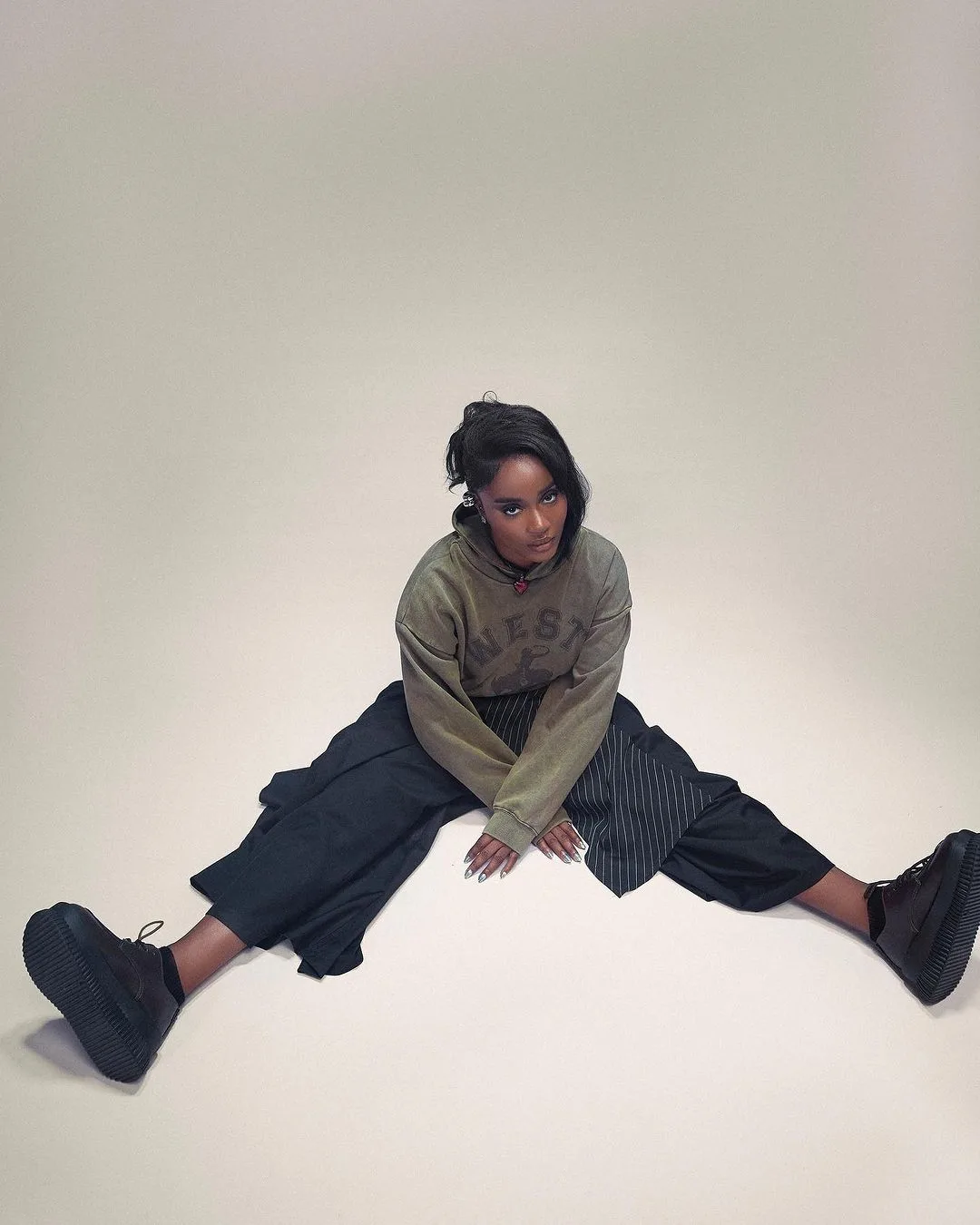
Genre-Bending Will Be the Norm
If there’s one thing that is apparent in African music, it is the fusion of diverse genres into a sonic whole. The latest wave of releases vividly showcases a penchant for genre fusion, defying simple categorisation.
A shining example of this trend is Tyla’s “Water”, a chart-topping anthem that seamlessly fused West African Afrobeats with the infectious beats of South Africa’s Amapiano music. Despite being a subject of debate over its genre classification, the single undeniably epitomises the beauty of cross-cultural musical amalgamation.
Ugandan songstress, Azawi, took experimentation to new heights in 2023 with her critically acclaimed project, Sankofa, where she explored Amapiano, Bongo Flava, Rumba, Afrobeats, and Dancehall. Meanwhile, artistes like Victony and Omah Lay wove intricate sounds influenced by Alte, Afro-Pop, and R&B. The eclectic sounds of Asake melds Afrobeats with the traditional elements of Fuji and Juju music. Thus, we may experience more cross-pollination between different genres this year.
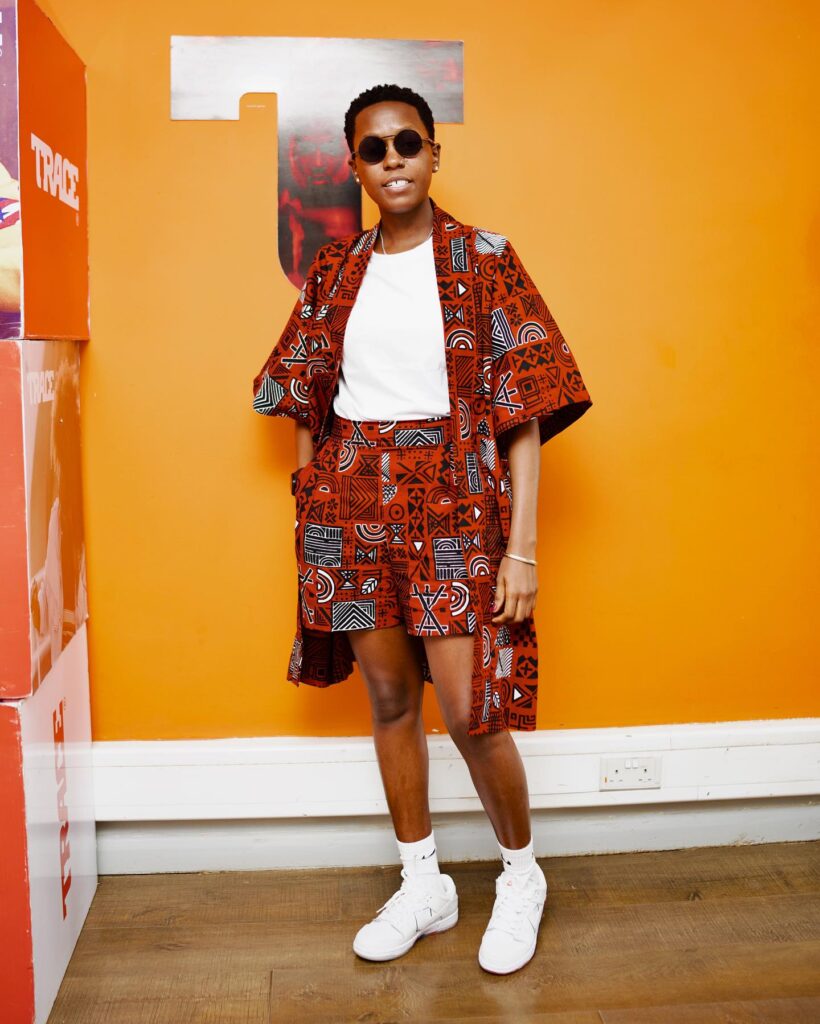
This isn’t limited to African acts, as we saw an incursion of African music into the mainstream Pop landscape. Chris Brown, for instance, experimented with Afrobeats last year with his single “Sensational” featuring Davido and Lojay. In my discussion with seasoned music and film critic, Jerry Chiemeke, he mirrors some of my perceived sentiments on the matter. “I see a lot of fusion and experimentation with genres. Many foreign acts will attempt to replicate the Chris Brown template, blending pop with Afrobeats.”
Clearly, this trend of genre fluidity shows no signs of waning. We can anticipate more groundbreaking projects emanating from the continent, where artistes will blend genres with creative abandon.
More Adoption of Streaming Platforms
As digital streaming platforms (DSPs) become more accessible in the African region, we may be noticing a full tilt to its adoption this year. A departure from the era of physical downloads into smart devices, the continent is witnessing a swift and comprehensive embrace of DSPs for music consumption.
The emergence of global giants such as Spotify, Apple Music, and YouTube Music, alongside Africa-focused streaming services like Boomplay, Jumamo, and Mdundo, has paved the way for a revolution in how people experience and engage with music. The convenience, extensive libraries, and personalised features offered by these platforms are catalysing a shift in the way music lovers access and enjoy their favourite tunes.
Beyond the joy of seamless access to an array of musical genres, the cultural phenomenon of sharing one’s end-of-year “Wrapped” or “Recap” artistes and songs on social media is also becoming a driving force behind the growing adoption of streaming platforms.
According to projections by Statista, the music streaming market in Africa is expected to grow by an impressive 7.71% between 2024 and 2027, hitting a market valuation of $513.2 million. This statistical evidence paints a vivid picture of the imminent decline of the music downloading era, as streaming establishes itself as the primary mode of music consumption on the continent.
More Global Music Companies’ Footprint in Africa
Last year, international music distribution companies made significant strides by establishing their presence on the continent. 2023 witnessed a surge in physical office setups and strategic licensing agreements as global entities recognised the immense potential and vibrancy of Africa’s music scene.
Universal Music took decisive steps forward by signing key licensing deals with noteworthy African distribution companies, including Ethiopia’s Sewasew Multimedia and South Africa’s Mdundo. Simultaneously, Warner Music partnered with Ghanian Record Label, Small World Records, and Virgin Music showcased its commitment to the region by inaugurating a dedicated office in Nigeria. The global streaming platform, Audiomack, extended its reach across the continent, and Australia’s Tuned Global teamed up with Nigeria’s Jumamo app. The Orchard, a major global distribution company, expanded its operations into West Africa, further reinforcing its position within the region. These strategic manoeuvres underscore the growing recognition of Africa’s music industry as a global force, attracting attention and investment from international entities.
In a conversation with Pulse Nigeria’s Music Editor, Adeayo Adebiyi, this trend is interpreted as irrefutable proof that African music is capturing the world’s attention. As Adebiyi aptly puts it, “There will be more joint ventures between international labels and artistes this year, which will even propagate African music to new heights.” This signals a future characterised by increased collaboration between global and African music powerhouses.
More International Collaborations
One of the direct impacts of the dominance of African music, especially Afrobeats, is the rise of international collaborations. Last year saw a collaboration of African and International artistes either for new releases or remixes.
A historic moment in the African music narrative occurred with Rema’s 2022 single, “Calm Down Remix”, a collaboration with the globally renowned Pop sensation Selena Gomez. This groundbreaking track not only showcased the global appeal of African music but also secured its place on the Billboard Hot 100, marking a historic milestone for the continent.
Asake joined forces with H.E.R for the evocative “Lonely At The Top Remix”, while Bia teamed up with Odumodublvck for “Chatty”. Nasty C collaborated with Benny The Butcher for “Prosper In Peace”, and Fridayy enlisted the talents of Adekunle Gold and Fireboy on his self-titled album. Burna Boy, in his 7th LP, I Told Them…, featured a stellar lineup including Dave, 21 Savage, and J. Cole.

As international music distribution companies continue to extend their operations within the continent, and with African music thriving on the global stage, the stage is set for an even more remarkable year of international collaborations.
Less Live Concerts, More Block Parties Particularly in West Africa
As the global acclaim for African music amplifies, artistes from the continent are increasingly becoming prized gems, with their popularity translating into higher booking costs for live concerts. This surge in demand, combined with the challenge of pricey tickets, has led to a noticeable shift in the way West African audiences are experiencing live music. This year, we are poised to witness a transformation in the live music landscape, with a potential move towards more accessible and community-oriented events, or simply put, the rise of block parties.
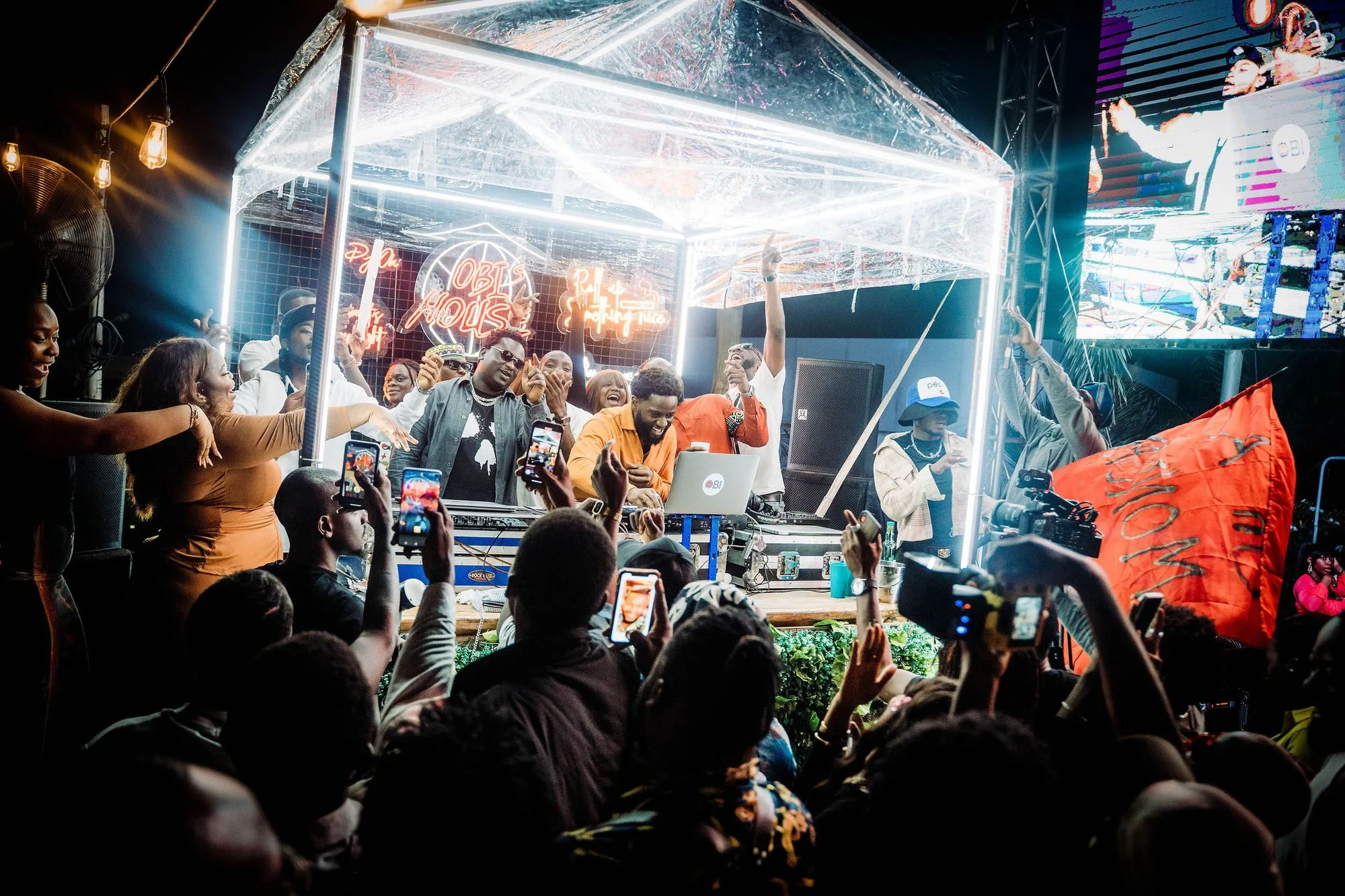
Traditionally, concerts featuring top-tier West African artists demand hefty ticket prices, and at times this makes it challenging for fans to afford the experience. Thus, the conventional concert format may give way to lively block parties. These gatherings, infused with the infectious energy of DJs and Hypemen, are set to become the preferred avenue for people to immerse themselves in great music without the financial strain of high-priced concert tickets.
TikTok Marketing Will Continue
The popular social media platform TikTok has not only become a playground for the internet-crazed generation, but also a powerhouse for promoting music. Over the past couple of years, African artistes and labels have increasingly turned to TikTok as a key channel for music promotion, with or without the aid of influencers. This strategic move has resulted in the catapulting of numerous tracks to the summit of popularity, including Joeboy’s 2021 single, “Alcohol”, Pheelz’s 2022 hit, “Finesse”, Victony’s 2022 song, “Soweto”, and a myriad of others.
TikTok has been instrumental in propelling smash hits like Ckay’s 2019 track, “Love Nwantiti” Rema’s 2022 single, “Calm Down”, and Oxlade’s 2022 song, “Ku Lo Sa” into the limelight. As we step into the unfolding chapters of the new year, the momentum behind TikTok marketing shows no signs of slowing down. In the words of Chiemeke, “There will always be debates on how organic these promotional styles are, but data doesn’t lie. TikTok will remain a viable marketing tool this year.”
Emmanuel ‘Waziri’ Okoro is a content writer and journo with an insatiable knack for music and pop culture. When he’s not writing, you will find him arguing why Arsenal FC is the best football club in the multiverse. Connect with him on Twitter, Instagram, and Threads: @BughiLorde




